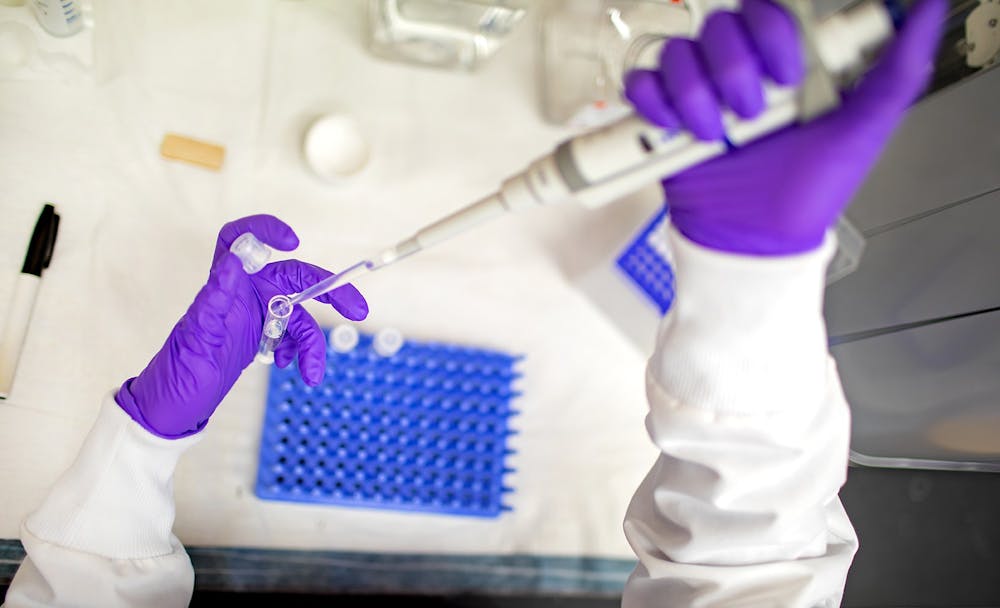Academic researchers from UNC and pharmaceutical industry scientists will continue working together to find a cure for HIV due to the $20 million, five-year renewal of their HIV cure partnership announced March 9.
The partnership is between UNC and ViiV Healthcare, a company based in Research Triangle Park, and began in 2015. The goal is to bring together experts from academia and industry scientists to gain a deeper understanding of HIV and develop an approach for eradicating the disease.
"This groundbreaking venture has flourished thanks to the talent and dedication of top scientists and researchers from Carolina and ViiV Healthcare,” Chancellor Kevin Guskiewicz said in a March 9 press release announcing the renewal of the partnership. “I am thrilled that this innovative partnership will continue making discoveries and advancing a cure for HIV, one of the most pressing challenges of our times."
Richard Dunham, director of HIV Cure for ViiV Healthcare and an adjunct assistant professor at UNC, said the collaboration brings together expertise in innovative science and medicine development, accelerating the pace of work.
“We all realized that we probably weren’t going to be able to do such an important and difficult thing as individuals and all recognized that we needed to bring a team of world-class people together to tackle the problem,” Dunham said. “We are very fortunate that there happened to be such a world-class set of investigators here at UNC.”
According to the press release, ViiV Healthcare and UNC scientists will continue to work at the HIV Cure Center located on UNC’s campus, created at the start of the partnership five years ago. ViiV Healthcare and UNC will also continue to jointly own Qura Therapeutics, a company that was created in 2015 "to manage the intellectual property, commercialization, manufacturing and governance needs of the collaboration."
David Margolis, director of UNC's HIV Cure Center and a UNC professor, said the partnership was intended to be long-term because finding a cure for HIV is a long-term pursuit.
Margolis and Dunham both said they define a cure for HIV as eliminating the virus from the body so people with HIV don’t have to undergo treatments for the rest of their lives. HIV treatments have progressed, but millions of people around the world remain infected and require a daily antiretroviral therapy, which blocks the active virus from spreading in the body.
“Our eventual goal is to get to a place where people who are living with HIV now don’t have to take their antiretroviral medicines on a daily basis and don't have to worry about transmitting to their partners and don’t have the stigma and the fear that is currently associated to some degree with HIV,” Dunham said.



